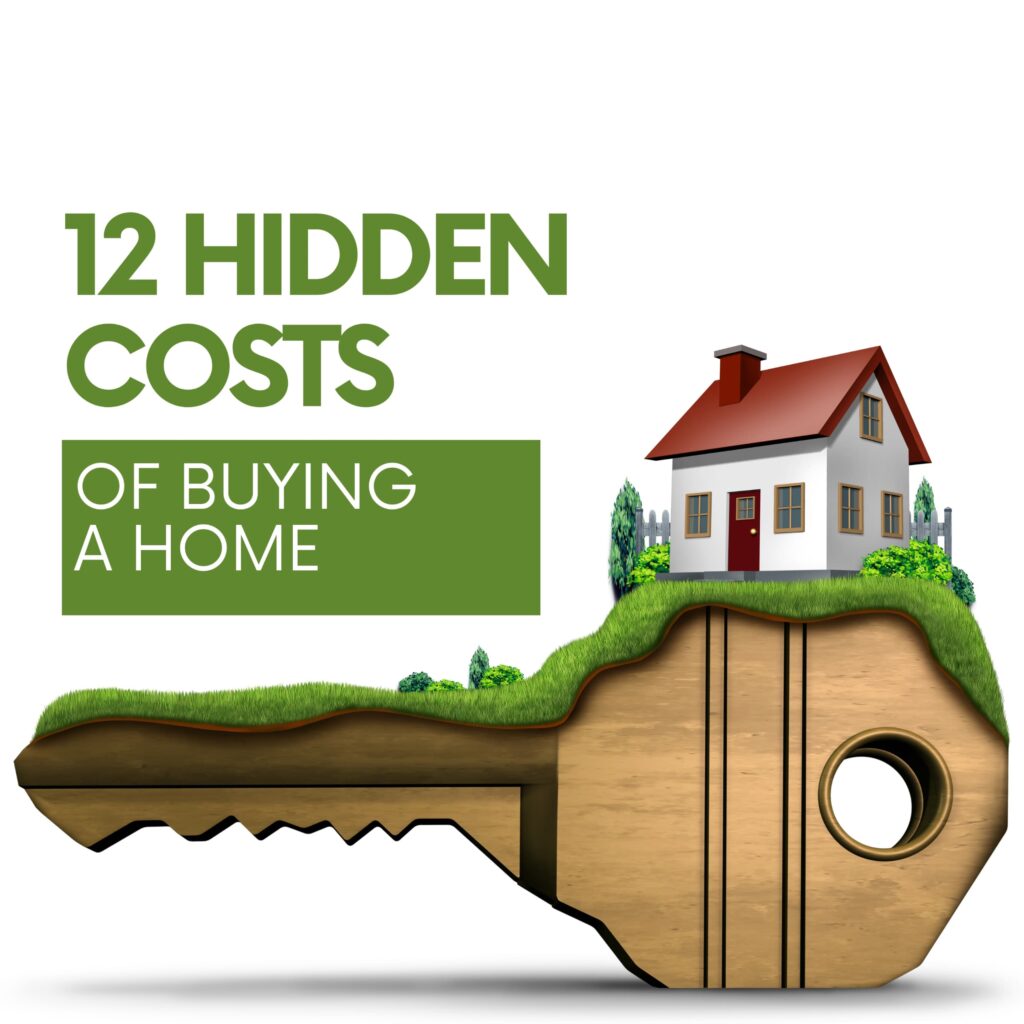Buying a home is one of the most significant financial decisions many people make in their lifetime. While most buyers budget for the down payment and monthly mortgage payments, they often overlook the numerous hidden costs that come with homeownership. These unexpected expenses can quickly add up, turning your dream home into a financial burden if you’re not prepared.
In this blog post, we’ll break down 12 hidden costs of buying a home and provide tips to help you budget effectively.
1. Closing Costs
Closing costs are fees paid at the end of the home-buying process. These typically include title insurance, attorney fees, and loan processing fees. Closing costs generally range from 2% to 5% of the home’s purchase price, so on a $300,000 home, you could pay between $6,000 and $15,000.
2. Property Tax
Property taxes are an ongoing expense that homeowners must pay annually or semi-annually. The amount is based on your home’s assessed value and your local tax rate. Be sure to research property tax rates in your area before purchasing.
3. Homeowners Insurance
Lenders require homeowners insurance to protect the property against damage or disasters. Premiums vary depending on the home’s location, size, and coverage levels. Expect to pay $1,000 to $3,000 annually, depending on the specifics of your policy.
4. Mortgage Insurance
If your down payment is less than 20% of the purchase price, you’ll likely be required to pay for private mortgage insurance (PMI). PMI typically costs between 0.5% and 1% of your loan amount annually.
5. Home Appraisal
A home appraisal determines the property’s market value and is required by lenders to ensure the home is worth the loan amount. Appraisal fees usually range from $300 to $600.
6. Home Inspection
Before finalizing your purchase, it’s wise to get a professional inspection to identify potential issues with the property. Inspections cost $300 to $500 but can save you thousands by uncovering hidden problems.
7. Moving Costs and Fees
Moving expenses can vary widely depending on the distance, volume of items, and whether you hire professional movers. Plan for costs ranging from $500 to $5,000 or more.
8. Home Maintenance and Repairs
Owning a home means taking care of maintenance and repairs. From fixing a leaky faucet to replacing a roof, these costs can add up quickly. Experts recommend budgeting 1% to 3% of your home’s value annually for maintenance.
9. Loan Origination Fee
Lenders often charge a loan origination fee for processing your mortgage. This fee typically ranges from 0.5% to 1% of your loan amount. For a $250,000 loan, that’s $1,250 to $2,500.
10. Earnest Money
Earnest money is a deposit made to show the seller you’re serious about buying the property. While it’s typically applied to your down payment or closing costs, it can be forfeited if you back out of the deal without a valid reason.
11. Utilities
Don’t forget to budget for utilities like water, electricity, gas, and trash removal. These costs can vary depending on your location, the size of your home, and the time of year.
12. Homeowners Association (HOA) Fees
If your home is in a community with a homeowners association, you’ll need to pay monthly or annual HOA fees. These can range from $200 to over $1,000 depending on the amenities and services provided.
FAQs About the Hidden Costs of Buying a Home
What is included in the cost of owning a home?
The cost of owning a home includes your mortgage payment (principal and interest), property taxes, homeowners insurance, utilities, maintenance, and any applicable HOA fees.
What is the biggest cost after buying a house?
Aside from your mortgage, property taxes and homeowners insurance are typically the largest recurring costs. Home maintenance and unexpected repairs can also be significant, so it’s essential to budget for them.
How can I estimate the monthly cost of owning a home?
To estimate the monthly cost, add your mortgage payment (including PMI, if applicable), property taxes, homeowners insurance, and utilities. You can also include an allowance for maintenance and HOA fees if applicable. Online calculators can help you get a clearer picture.
Final Thoughts
Buying a home is an exciting milestone, but it’s essential to prepare for the hidden costs that come with it. By understanding these expenses and planning accordingly, you can avoid surprises and set yourself up for a successful homeownership journey.
Are you ready to take the next step? Visit our blog for more tips and tools to help you navigate the home-buying process!



